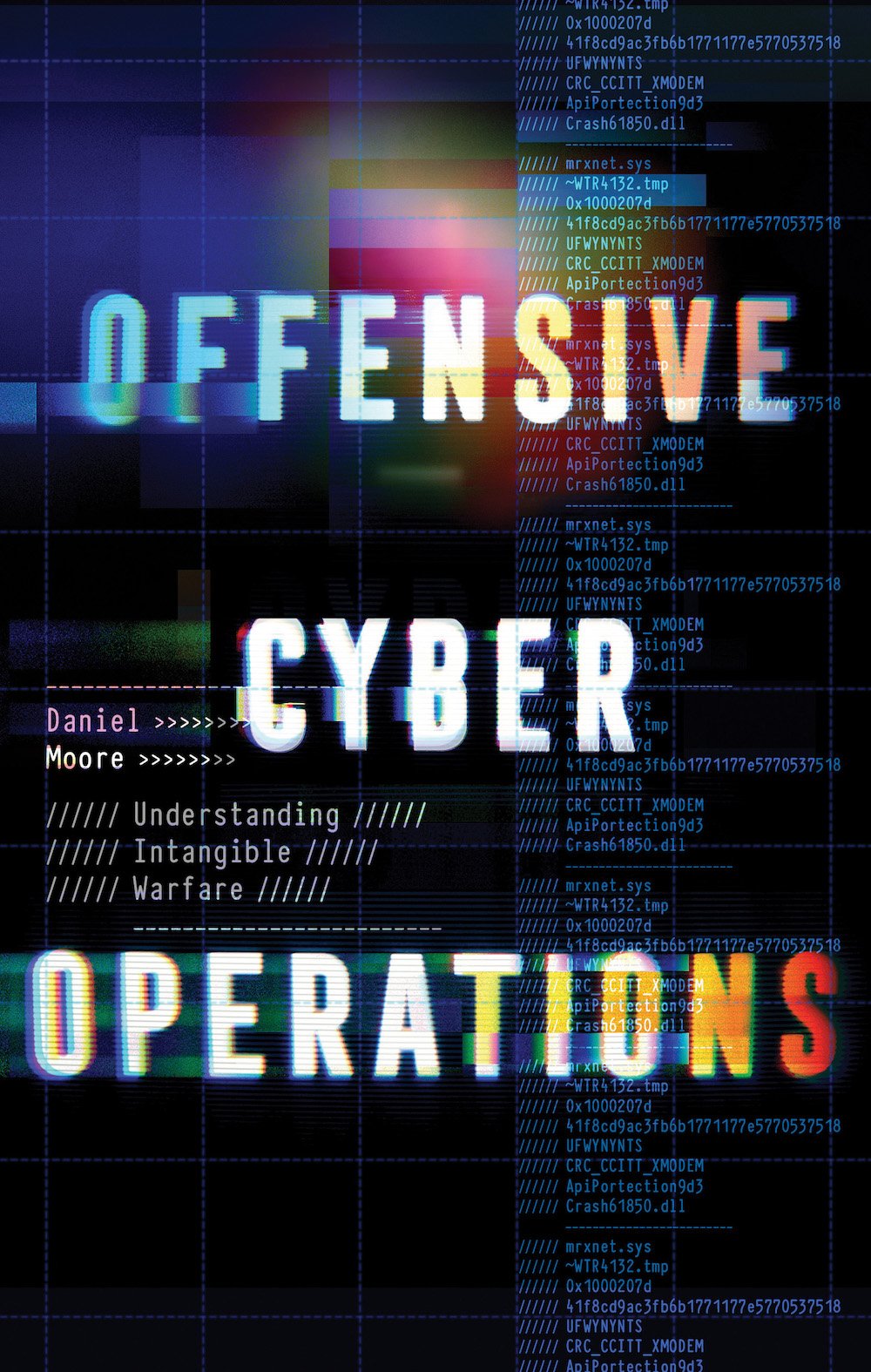Offensive Cyber Operations
Understanding Intangible Warfare

Cyber-warfare is often discussed, but rarely truly seen. When does an intrusion turn into an attack, and what does that entail? How do nations fold offensive cyber operations into their strategies? Operations against networks mostly occur to collect intelligence, in peacetime. Understanding the lifecycle and complexity of targeting adversary networks is key to doing so effectively in conflict.
Rather than discussing the spectre of cyber war, Daniel Moore seeks to observe the spectrum of cyber operations. By piecing together operational case studies, military strategy and technical analysis, he shows that modern cyber operations are neither altogether unique, nor entirely novel. Offensive cyber operations are the latest incarnation of intangible warfare – conflict waged through non-physical means, such as the information space or the electromagnetic spectrum.
Not all offensive operations are created equal. Some are slow-paced, clandestine infiltrations requiring discipline and patience for a big payoff; others are short-lived attacks meant to create temporary tactical disruptions. This book first seeks to understand the possibilities, before turning to look at some of the most prolific actors: the United States, Russia, China and Iran. Each has their own unique take, advantages and challenges when attacking networks for effect.

Daniel Moore has over fifteen years' experience in the intersection of technology, intelligence and cyber. He holds a PhD from King's College London and has held roles in the public and private sectors, including with the Israeli military, IBM, Accenture and Facebook. Daniel has published extensively on security issues.
